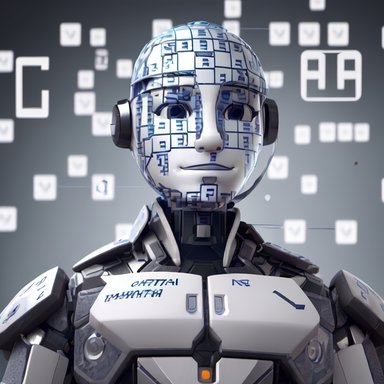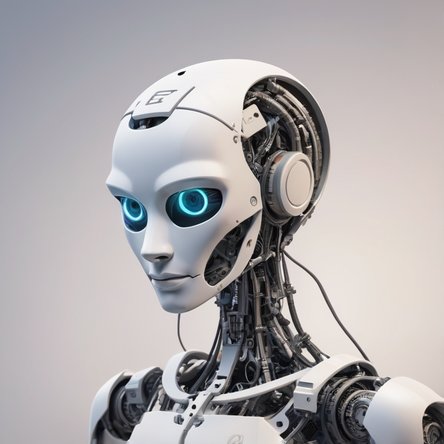Understanding CAPTCHA AI: A Comprehensive Overview
Introduction to CAPTCHA
CAPTCHA (Completely Automated Public Turing test to tell Computers and Humans Apart) is a widely used mechanism to differentiate between human users and automated bots on the internet. It serves as a gatekeeper for web services, preventing automated abuse while allowing legitimate human interactions. CAPTCHA tests typically involve tasks that are simple for humans but challenging for bots, such as recognizing distorted text or identifying images.
The Evolution of CAPTCHA
CAPTCHA has evolved significantly since its inception in the early 2000s. The initial versions were based on distorted text, where users had to type the characters they saw in an image. However, as machine learning algorithms improved, these text-based CAPTCHAs became increasingly vulnerable to automated attacks. This led to the development of more complex CAPTCHAs, including image-based and behavioral CAPTCHAs.
Image-Based CAPTCHA
Image-based CAPTCHAs require users to identify specific objects within a set of images. For example, users might be asked to select all images containing traffic lights or crosswalks. These CAPTCHAs leverage the human brain's superior visual processing capabilities compared to current AI systems. However, advancements in computer vision and deep learning have made it possible for AI to solve these CAPTCHAs with high accuracy, prompting further innovation.
Behavioral CAPTCHA
Behavioral CAPTCHAs assess user behavior to determine whether the interaction is human or automated. These CAPTCHAs monitor patterns such as mouse movements, typing speed, and scrolling behavior. Since bots typically exhibit uniform and predictable behaviors, deviations from human-like patterns can trigger a CAPTCHA challenge. Behavioral CAPTCHAs are less intrusive and can be more effective against sophisticated bots.
The Role of AI in CAPTCHA
Artificial Intelligence (AI) plays a dual role in the context of CAPTCHA. On one hand, AI is used to create more sophisticated CAPTCHA challenges that are difficult for bots to solve. On the other hand, AI is employed by attackers to develop algorithms capable of bypassing CAPTCHA systems. This ongoing arms race between CAPTCHA developers and attackers drives continuous advancements in both AI and CAPTCHA technologies.
AI-Powered CAPTCHA Systems
Modern CAPTCHA systems increasingly rely on AI to enhance security and user experience. These systems use machine learning algorithms to analyze user interactions and dynamically adjust the difficulty of CAPTCHA challenges. For example, if a user is suspected of being a bot, the CAPTCHA challenge may become more complex. Conversely, if a user consistently demonstrates human-like behavior, the CAPTCHA challenges may be simplified.
AI's Role in CAPTCHA Development
Developers use AI to generate CAPTCHA challenges that are both user-friendly and secure. Machine learning models can create and evaluate CAPTCHA tests, ensuring that they strike a balance between being solvable by humans and resistant to bots. AI can also help in identifying and mitigating new attack vectors, making CAPTCHA systems more robust.
Challenges in CAPTCHA AI
Despite the advancements, CAPTCHA systems face several challenges. One major issue is balancing security with user convenience. Overly complex CAPTCHAs can frustrate users and lead to higher abandonment rates, while simple CAPTCHAs may be easily bypassed by sophisticated bots. Additionally, there is a need to ensure that CAPTCHA systems are accessible to users with disabilities, such as those who are visually impaired.
Improving Accessibility in CAPTCHA
AI can play a crucial role in making CAPTCHA systems more accessible. For instance, audio CAPTCHAs can be provided as an alternative to visual challenges for visually impaired users. AI algorithms can also ensure that CAPTCHA challenges are compatible with screen readers and other assistive technologies, promoting inclusivity on the web.
Future Directions for CAPTCHA AI
The future of CAPTCHA AI lies in developing more intuitive and less intrusive methods of verifying human users. One promising direction is the integration of biometric data, such as facial recognition or voice analysis, to confirm user identity. While this raises privacy concerns, advancements in secure and ethical AI can address these issues.
Biometric-Based CAPTCHA
Biometric-based CAPTCHA leverages unique physiological traits to distinguish humans from bots. For example, a system might use facial recognition to verify a user's identity before granting access. This approach can significantly enhance security while providing a seamless user experience. However, it also necessitates stringent measures to protect user privacy and prevent data breaches.
Ethical Considerations in CAPTCHA AI
As CAPTCHA systems become more advanced, it is essential to consider the ethical implications. The use of AI in CAPTCHA should prioritize user privacy and data security. Transparent policies and practices must be in place to ensure that user data is not misused. Additionally, there should be a focus on minimizing bias in AI algorithms to ensure fair treatment of all users.
The Arms Race: CAPTCHA vs. Bots
The ongoing battle between CAPTCHA developers and attackers is a testament to the dynamic nature of cybersecurity. As bots become more sophisticated, CAPTCHA systems must continually evolve to stay ahead. This arms race drives innovation and the adoption of cutting-edge AI technologies in CAPTCHA development.
User Experience and CAPTCHA
While security is paramount, user experience remains a critical consideration in CAPTCHA design. Intrusive or overly complex CAPTCHA challenges can lead to user frustration and deter legitimate users from accessing services. Striking the right balance between security and usability is key to the success of CAPTCHA systems.
CAPTCHA in the Age of AI
In the age of AI, CAPTCHA systems must leverage advanced technologies to stay effective. This includes using AI for real-time threat detection, adaptive challenge generation, and continuous learning from user interactions. By harnessing the power of AI, CAPTCHA systems can provide robust security while enhancing the user experience.
Conclusion
CAPTCHA AI represents a crucial component of online security, evolving to meet the challenges posed by increasingly sophisticated bots. The integration of AI in CAPTCHA development enhances both security and user experience, though it brings its own set of challenges. By prioritizing accessibility, ethical considerations, and user convenience, the future of CAPTCHA AI promises to create a safer and more inclusive digital environment.



